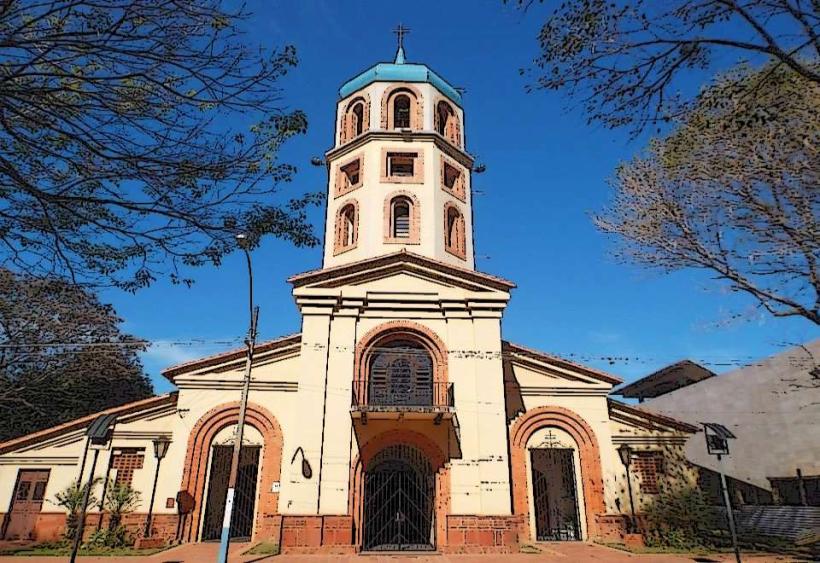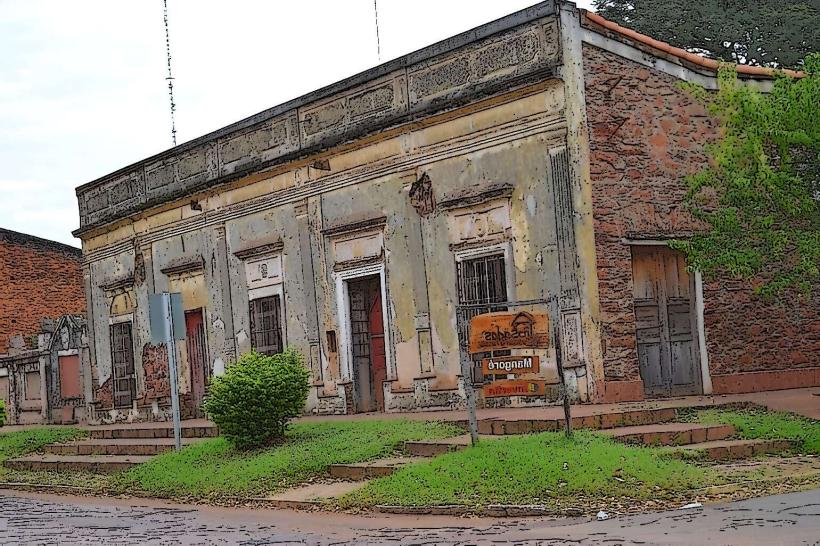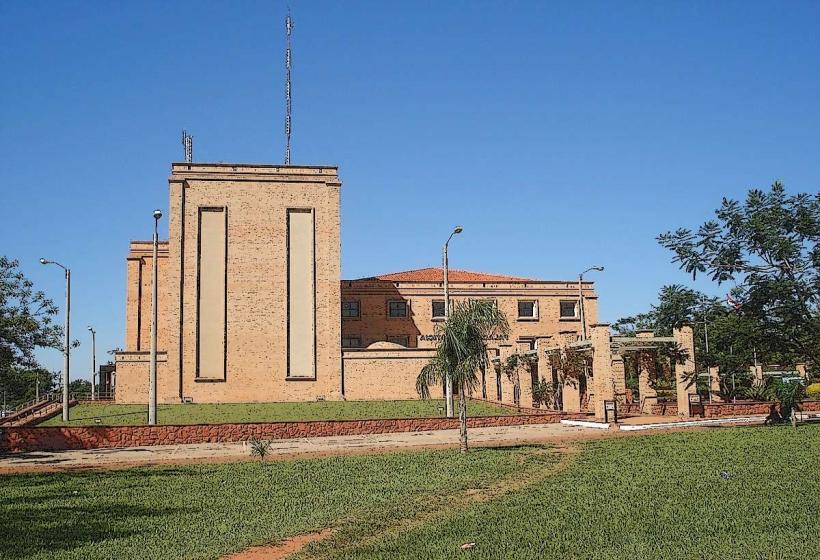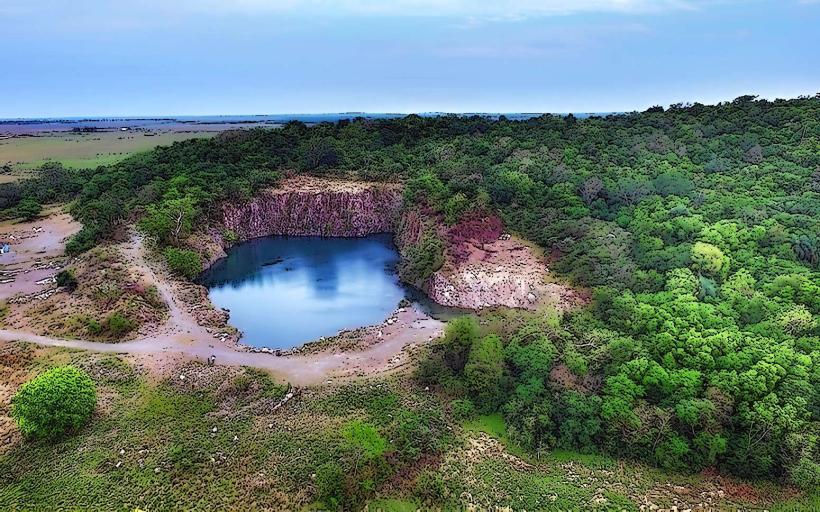Information
City: San Juan BautistaCountry: Paraguay
Continent: South America
San Juan Bautista, Paraguay, South America
San Juan Bautista serves as the administrative capital of the Misiones Department and is the recognized seat of the Roman Catholic Diocese of San Juan Bautista de las Misiones. It is positioned in southern Paraguay, approximately 196 kilometers south of Asunción along National Route PY01.
Historical Timeline
The city was established in 1893 during the government of Juan Gualberto González and Carlos Antonio López's developmental influence, though it was not designated as the departmental capital until 1945. The primary era of governance that defined its modern infrastructure was the mid-20th century transition from a rural outpost to a regional political hub. The most significant architectural reconstruction occurred following the Chaco War, during which the city integrated military monuments into its urban core. The founding of the Roman Catholic Diocese in 1957 serves as the primary event shaping its current cultural and urban identity as a religious center.
Demographics & Population
The total population within the city limits is approximately 18,500, with a wider district population of roughly 23,000. The demographics are predominantly Multiracial/Mestizo (75%), followed by White/European descent (20%) and small minorities of Indigenous and East Asian residents. The median age is approximately 27 years, reflecting the broader national average.
Urban Layout & Key Districts
The city is organized on a traditional Spanish colonial grid centered around the Cathedral and the main plaza.
The Cathedral District: The historical and religious core where administrative buildings and primary services are concentrated.
Boquerón Square Area: A central meeting point featuring monuments and the city’s primary social infrastructure.
Industrial/Agricultural Peripheral Zone: Located on the outskirts, where the region’s primary soy, wheat, and cattle processing facilities are situated.
Top City Landmarks
San Juan Bautista Cathedral: A Jesuit-style architectural centerpiece and seat of the Diocese.
The "El Viejo Taller" Art Gallery: A cultural hub dedicated to regional artists and the legacy of Agustín Pío Barrios.
Boquerón Square: Known for its central fountain and monuments to Chaco War veterans.
Monseñor Rojas Theater: The city’s primary venue for performing arts and formal civic events.
Lilly’s Island (Isla de los Lirios): A natural site on the San Cristóbal stream known for its abundance of aquatic flowers.
Transportation Network
There is no metro or tram system. Internal transit is provided by local bus lines and a high density of motorcycles. Long-distance transit is managed via the terminal on Route PY01, connecting to Asunción and Encarnación. Ride-sharing apps like Uber have limited to no availability; transit is dominated by "Moto-taxis" and official taxis, which are typically white or silver. Traffic density is low, though activity peaks during the San Juan festivals in June.
Safety & "Red Zones"
The city maintains a high safety rating, consistent with rural departmental capitals. There are no specific "red zones" or dangerous neighborhoods to avoid. Petty theft is rare but possible at the bus terminal. Common scams involve overcharging for private transportation during the patron saint festivities when visitor volume increases.
Digital & Financial Infrastructure
Average internet speed is approximately 40 Mbps. Main mobile carriers are Tigo and Personal. Card acceptance is high in supermarkets and hotels but low in local markets and small "comedores." ATMs are primarily located around the main plaza, operated by Banco Nacional de Fomento (BNF) and private entities like Sudameris.
Climate & Air Quality
Temperatures range from 22°C to 38°C in summer (October–March) and 10°C to 24°C in winter (June–August). Air quality is generally excellent due to the absence of heavy industry, though smoke from agricultural field clearing can affect visibility in late winter. Frost is a rare but possible weather risk in July.
Culture & Social Norms
Tipping: 10% is appreciated but not mandatory.
Greeting: A handshake is the standard for first meetings; two kisses on the cheek are standard for acquaintances.
Dress Code: Conservative business-casual is expected in religious and government buildings.
Regulations: Public consumption of alcohol is common during festivals but restricted near schools and churches during standard hours.
Accommodation Zones
Cathedral Perimeter: Stay here for immediate walking access to historical sites and the best dining options (e.g., Hotel Boutique La Catedral).
Route PY01 Access: Stay here for logistical ease if traveling between Asunción and the southern border.
Local Cost Index
1 Espresso: 14,000 PYG ($1.85 USD)
1 Standard Lunch: 35,000 PYG ($4.65 USD)
1 Bus Ticket (Local): 3,500 PYG ($0.45 USD)
Nearby Day Trips
San Ignacio Guazú: 35 km (Jesuit mission ruins and museum).
Santa Maria de Fe: 55 km (Artisan workshops and colonial history).
Villa Florida: 40 km (River beaches and fishing on the Tebicuary River).
Facts & Legends
San Juan Bautista is the birthplace of Agustín Pío Barrios "Mangoré," widely considered one of the greatest classical guitarists and composers of all time. A local urban legend claims that Barrios’ ghost returns to the "El Viejo Taller" gallery on stormy nights, and residents say they can hear the faint, spectral melody of "La Catedral" drifting from the building when the streets are empty.





